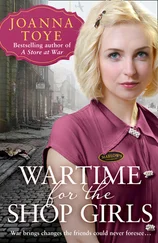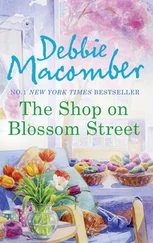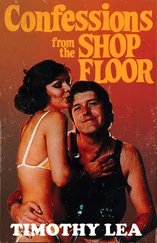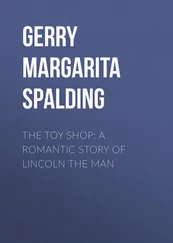“She’s dead.” He focused on Landry. “Long, long story. Her daughter… Did I tell you we have a cop in the family? A detective . Real small potatoes—my guess is she spends all her time investigating bicycle thefts, things like that.”
Landry turned the subject to security. Specifically, what kind of security they had on the island.
“You won’t believe this, but when I left? They said I was on my own—no more security detail. Just like that.”
“But you have security now?”
“Rent-a-cops. But the place is secure, you’d better believe it. The VP comes down here a lot, so everything’s in place, paid for by the U.S. government—motion sensors, cameras, all sorts of stuff. You should see it when Owen comes. Snipers on the roofs, Coast Guard, one if by land, two if by sea. It’s like a traveling circus, only real buttoned-down, you know? All those guys in suits talking into their wrists. Reminds me of when I had my own motorcade. Nobody appreciates how important I was to this country.”
Diatribe time. Landry let him ramble. Finally he wound down. “I did a lot for the people of the United States.”
Landry held Frank’s wrist up and checked his pulse rate. He said, “I know you did. The average American Joe doesn’t understand that, but I do. I admire you.”
“You admire me?”
“I like the way your mind works. But I’m curious. What gave you the idea?”
“The idea?” Haddox looked at him, confused.
“Aspen. Brienne Cross. It was brilliant.”
“Oh, that. Aspen wasn’t the first, and it won’t be the last, either. You remember the Mexican singer? What’s her name? And a bunch of others—you wouldn’t believe how easy it was—how well it’s worked. Talk about ‘thinking outside the box.’ Simple but brilliant. Brienne Cross is just the tip of the iceberg.” He smiled.
Landry smiled, too.
33
On the way out of Panama City, just before Tyndall Air Force Base, there was a little hole-in-the-wall flower shop called Sweetheart’s. Jolie bought white roses there. She slid open the frosted glass door and picked out the bouquet, not the most expensive but not the least expensive either, and inhaled the damp sweet smell of the flowers, beaded with moisture.
She paid the clerk, a woman she recognized but did not know by name, a big woman in a flowered smock with dozens of rings on her fingers that matched her barrettes. The woman beamed, her cheeks exactly like round apples, and asked Jolie if she wanted a card to write her sentiments on.
“No thanks,” Jolie said. “He knows what I think.”
“That’s the best kind of relationship,” the woman said.
Jolie drove into the cemetery off Palmetto Road and walked to the headstone set into the grass like a paving stone. The stone was polished granite. She couldn’t really afford it, but felt she had to give him the best. He’d been denied the big send-off, with cops from all over Florida, spit-shined and stoic, tears in their eyes. The fired salute, the folded flag, Jolie in a black dress and veil. None of that. She tried to make up for it with the gold engraving of a badge cut into the stone. The dark gray granite shimmered in and out of a lone pine’s shadow, declaring itself bravely: this was a person somebody lavished money on.
Jolie set the flowers in the cup and glanced at her watch. Every month, sixteen of them, she’d come here on or around the anniversary of Danny’s death. Lately, the date seemed to slip by and she’d make it sometime during the week. Her devotion had stayed the same—forced. First it was stunned and forced. Then it was raw and forced. Then it was angry and forced. Now it was just forced. She’d skipped right past grief, and she felt guilty about that. There was nothing left to her presence here except her need to show the world that Dan Tybee was not forgotten.
Her father had taught her about solidarity early on. Hold up your side. Danny was a good cop, and he deserved a cop’s funeral. If they didn’t give him the send-off, she would. Whether or not she loved him, she would damn well give him that.
The really bad thing? She had loved him. She’d loved him unreservedly, up to the moment the gunshot reverberated through the air of that deserted cabin.
Kay told her to let it go. “It’s time you stopped being a widow.” “You need to move on.” “Don’t be a martyr.”
She wasn’t a martyr.
Truth to tell, being a widow made things a whole hell of a lot easier. She didn’t have to even think of finding another man. That was off the table for now—no way she was ready for that. She wore the ring and she visited the grave and she refused to talk about it and that pretty much did the trick. But coming to his grave had become a chore, something she did for the sake of doing. When she stood at his grave, Jolie felt nothing but impatience. Her mind filled with other things she had to do.
But she’d keep him here. Keep his memory. He’d slipped away from her in every other way, but here, under her feet, she finally had his attention.
34
Landry went online to look for an off-track betting parlor. He found one—a ten-minute taxi ride away from Frank’s slip in the Emerald Bay Marina in Panama City, where they were currently moored.
Frank kept the slip so he could entertain guests or play golf at the Marriott.
Landry’s older brother called him early this morning with the news that Chernobyl Ant would finally run today at Hollywood Park. It would be his first race. The colt had the recurring quarter crack, but the patch on his hoof was solid and the track conditions were good, so it was a go. Earlier, Landry had clicked through the channels on Franklin’s satellite TV and discovered that Frank’s service didn’t subscribe to the racing channels.
Landry made sure the attorney general was secured in the bed—trussed up like a Thanksgiving Day turkey—and raised the level of the triptascoline drip. He closed the blinds and locked everything up tight. He had Frank’s card to get in and out of the gated marina.
The OTB was in a bar, smoky and dark and anonymous. Lots of characters. They looked as if their lives had been drifting out of them, like a slow leak in a tire. Too many beers over a lifetime, too many cigarettes. But then the horses came on simulcast and life came back to their eyes, as if these people remembered who they were. The racetrack could do that.
He took a place at the bar and looked up at the monitor. There was one race before Chernobyl Ant’s. Landry watched the horses parade down the track at Hollywood Park. Bright green grass. Palms. The California haze. Landry loved the backstretch, loved the action there. It would always be inside him. The only thing more important to him at the moment was taking care of business for Brienne and the others.
Now he knew why they died. All of them: the Egyptian professor, the Mexican pop star, the actor and his wife in Montana.
It was the result of Franklin’s “audacious plan.” “So simple,” he’d told Landry, the triptascoline working just like a truth serum.
“It didn’t bother you that they were innocent people? That you just picked them off a list and killed them for the hell of it?”
“Not for the hell of it,” Franklin said. “They were important. They were a distraction.”
A distraction .
And Landry had followed orders, blindly. He’d had no idea he was working for private interests, not for his country. He couldn’t bring Brienne Cross back, but he could avenge her death. Her death, and the others.
The race was coming up. He picked a powerful gray colt, and the gray won. His jockey expertly flipped his whip around and wriggled it—his version of celebrating in the end zone.
Читать дальше











